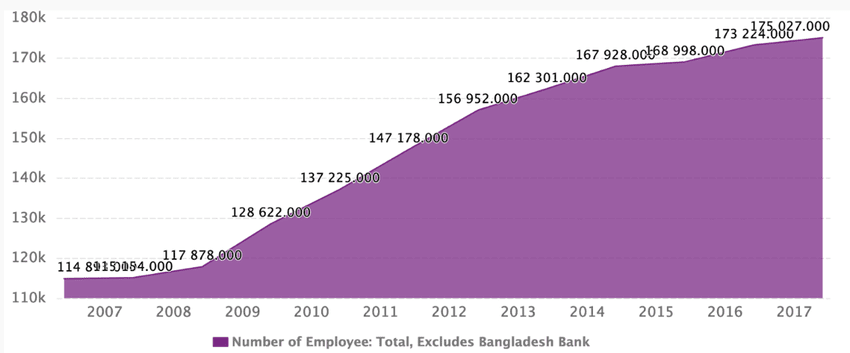The Nigerian banking sector is gearing up for a landmark year driven by the Central Bank of Nigeria recapitalisation mandate and broader economic challenges. With banks required to meet minimum paid-up capital thresholds by March 2026, the industry is set for a significant overhaul that could redefine its competitive landscape. These regulatory reforms, coupled with persistent inflationary pressures and evolving customer demands, position 2025 as a transformative period for Nigerian banks
The CBN’s directive for increased capital requirements has raised the bar for Nigerian banks. Under the new regulations, international banks must maintain a minimum capital base of N500 billion, national banks N200 billion, and regional banks N50 billion. This move is reminiscent of the 2004-2006 consolidation reforms that reshaped the sector. Analysts believe this current exercise will have far-reaching implications for the industry.
“Raising the shortfall and seeking regulatory approvals are expected to dominate the first half of 2025. While many banks are on track, non-interest banks and smaller players might need to explore creative solutions such as mergers or acquisitions to meet the thresholds,” remarked Head of Financial Institutions Ratings at Agusto & Co. Ayokunle Olubunmi in an interview with THISDAY.
Olubunmi further noted that the recapitalisation exercise could lead to a reshuffling of the banking hierarchy. He said, “It’s possible we’ll see some Tier-2 banks rise to Tier-1 status or even surpass current Tier-1 players. Conversely, smaller banks might face consolidation to remain viable.”
Mergers, Acquisitions, Strategic Restructuring
One of the key trends emerging from the recapitalisation exercise is a wave of mergers and acquisitions (M&A). Tier-2 banks, in particular, are exploring horizontal mergers to strengthen their competitive edge against Tier-1 giants. This strategy could also involve acquiring smaller Tier-3 banks to bolster balance sheets and expand market reach.
Managing Director and CEO of Anchoria Advisory Services, Sam Chidoka, emphasised this trend: “For Tier-2 banks, it’s about creating scale. Horizontal mergers and acquisitions will allow them to remain competitive, especially as larger balance sheets become critical for underwriting substantial loans.”
However, Chidoka dismissed the likelihood of Tier-2 banks being acquired by Tier-1 institutions. “Most Tier-2 banks aim to survive independently. M&A can be disruptive, and these banks will likely prefer to grow organically or merge among themselves,” he explained.
Despite these opportunities, Afrinvest Securities Limited warned of potential trade-offs. In its 2024-2025 outlook report, the firm noted that consolidation could lead to significant job losses and integration challenges. “While recapitalization will foster resilience, the broader implications for employees and smaller banks may be less favorable,” the report stated.
Economic Challenges, Profitability Pressures
The Nigerian economy, according to analysts, presents a mixed bag of challenges and opportunities for banks. “High inflation rates, currency devaluation, and fluctuating oil revenues continue to exert pressure on profitability and operational costs. Yet, analysts remain optimistic about the sector’s resilience,” they stated.
According to a Zedcrest Wealth report, robust interest income and digital transformation initiatives are expected to sustain profitability in 2025. “Nigerian banks have shown remarkable adaptability, and this trend will likely continue as they leverage new technologies and diversify their income streams,” the report noted.
However, the hawkish monetary policy stance of the CBN may dampen loan growth. Olubunmi highlighted this concern, stating, “The current interest rate environment could moderate appetite for lending, particularly in a volatile macroeconomic setting.”
Role of Technology in Transformation
Technology remains a critical driver of change in the Nigerian banking sector. Fintech innovations, from digital lending platforms to artificial intelligence-powered personalisation, are redefining customer experiences and expanding financial inclusion. The CBN’s Payment Systems Vision 2025 underscores the importance of digital adoption in creating a more inclusive and efficient financial ecosystem.
“By 2025, we expect a seamless integration of fintech solutions within traditional banking frameworks. This collaboration will enhance operational efficiency while addressing gaps in financial inclusion, particularly for the unbanked population,” said an industry expert.
Despite these advancements, Fitch Ratings has expressed concerns over asset quality and regulatory uncertainties, warning that these issues could undermine long-term stability. Additionally, a PwC report suggests that traditional banks must adapt rapidly to remain relevant in an era where digital finance could overshadow conventional models.
2025 Opportunities and Risks
The recapitalisation exercise, while necessary, comes with its share of uncertainties. Analysts caution that the March 2026 deadline could bring last-minute surprises, similar to the 2005 reforms that saw dramatic shifts late in the process. By December 2025, the landscape could see unprecedented realignments, including the emergence of new industry leaders.
As banks navigate these changes, the focus will be on leveraging their newly raised capital for profitable growth. The second half of 2025 will likely see banks deploying capital into innovative products and expanding their domestic and international footprints,” Olubunmi observed.
However, external factors, such as foreign exchange volatility and inflation, remain significant risks. Afrinvest Securities noted that these pressures could undermine the USD valuation of the capital base, complicating compliance efforts.
A Sector in Transition
The Nigerian banking sector in 2025 is poised for a year of transformation, driven by recapitalisation, technological innovation, and structural changes. While challenges such as economic volatility and regulatory uncertainties persist, the sector’s resilience and adaptability offer hope for a stronger and more competitive future.
As Olubunmi aptly summarised: “2025 will be a defining year. By the end of this recapitalisation exercise, the Nigerian banking sector could emerge more robust, innovative, and better positioned to drive economic growth.”
QUOTES
“Technology remains a critical driver of change in the Nigerian banking sector. Fintech innovations, from digital lending platforms to artificial intelligence-powered personalisation, are redefining customer experiences and expanding financial inclusion. The CBN’s Payment Systems Vision 2025 underscores the importance of digital adoption in creating a more inclusive and efficient financial ecosystem.”
“By 2025, we expect a seamless integration of fintech solutions within traditional banking frameworks. This collaboration will enhance operational efficiency while addressing gaps in financial inclusion, particularly for the unbanked population. Despite advancements in technology, Fitch Ratings has expressed concerns over asset quality and regulatory uncertainties, warning that these issues could undermine long-term stability. Additionally, a PwC report suggests that traditional banks must adapt rapidly to remain relevant in an era where digital finance could overshadow conventional models.”


